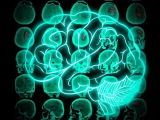Jan 10, 2013
WHO to convene Jan 14-15 meeting on novel coronavirus
The World Health Organization (WHO) will convene a technical meeting early next week about the novel human coronavirus that has been confirmed in nine cases in recent months, including five fatalities. "WHO has organized a technical consultative meeting to take place at the WHO Regional Office in Cairo from 14 to 15 January 2013 on the novel human coronavirus. The meeting will bring together representatives of the three countries already affected, in addition to key partners and WHO collaborating centres involved in managing this public health issue, together with WHO experts," the agency said in a news release yesterday. Cases so far have been in patients from Saudi Arabia, Qatar, and Jordan. The goal of the meeting is to obtain the most up-to-date understanding of the virus, identify key knowledge gaps, and identify steps to gain a better understanding of the virus, the WHO said.
Jan 9 WHO news release
Study: Ferrets may be good models for studying flu virus reassortment
In an experiment, the co-infection of ferrets with two different recombinant influenza viruses led to the emergence of a new strain containing genes from both viruses, suggesting that ferrets may serve as good animal models for studying flu virus reassortment, says a report yesterday in the Journal of Virology. Ferrets are commonly used to study flu virus activity, but reassortment in the animals has been little studied, according to the report by researchers from the University of Maryland and the US Food and Drug Administration. In previous studies in which ferrets were co-infected with pandemic 2009 H1N1 (pH1N1) and H3N2 viruses, reassortment did not occur. The researchers here used two types of recombinant viruses, one carrying the surface genes of a seasonal H3N2 strain with background genes from pH1N1, and the other having the reverse combination. After several passages of these co-infections in ferrets, a dominant H1N2 reassortant virus emerged, most of whose gene segments came from pH1N1. The authors say their findings suggest that reassortment events in lab ferrets parallel those that occur in nature. "The rapid selection of specific gene segments in our study highlights the utility of the ferret as an in vivo model to study the viral and host factors contributing to reassortment," they comment.
Jan 9 J Virol abstract
FDA warns two egg producers about rule violations
The FDA has warned two egg companies that some of their facilities are violating shell egg safety rules, according to letters the agencies sent the firms in late December and posted on its Web site yesterday. The warnings relate to July 2012 inspection findings at the Midwest Poultry Services facility in Ft Recovery, Ohio, and inspections on various dates in May through August at five California facilities held by SKS Enterprises, Inc. The main violations at Midwest Poultry were that the firm failed to implement portions of its Salmonella Enteritidis prevention plan, to use appropriate rodent control in four layer houses, and to maintain documentation for complying with refrigeration requirements. For the SKS Enterprises farms, the violations varied by facility and included, for example, deviations from Salmonella Enteritidis testing protocols and failure to prevent wild birds from entering the poultry houses. The FDA directed both companies to reply to the letters, detailing steps they have taken to correct the violations. The shell egg rules, which took several years to develop, went into effect for the biggest producers in July 2010.
Dec 20 FDA warning letter
Dec 21 FDA warning letter


















